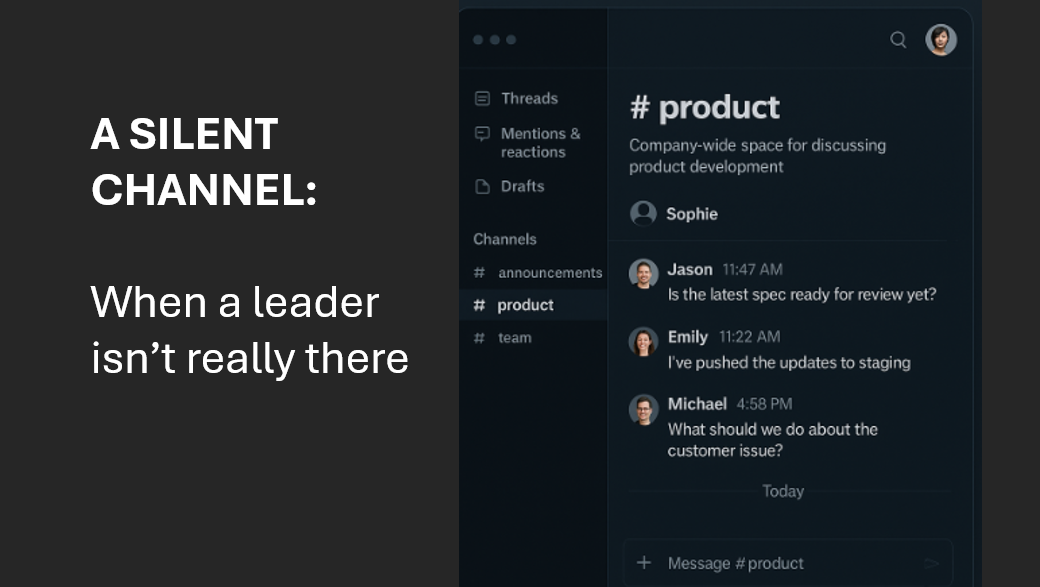The curious leader has an insatiable interest in new people, new things and new experiences. They have constantly active minds as one fresh insight leads to another, which leads to the desire for yet further discovery. They pursue this interest for personal growth with a view to uncovering fresh insights and new ideas that can take their team and the business forward. Without an eagerness to discover there can be no innovation, awareness, problem solving, value creation or agility.
We were all great at discovering as young children when we saw the whole world as an adventure playground, yet over time many of us lose this natural instinct – as if exploring and asking questions exposes us as ‘unknowing’ or inferior. Often it requires courage to ask the ‘dumb’ question that everyone in the room wants to know the answer to. Get out of your own way and find the confidence to go where others are not prepared to go. Role modelling such a ‘naïve’ approach, where you park your ego at the door and seek to discover, has very positive effects on others too.
Todd Kashdan, researcher and author of the wonderful book Curious?, recommends always listening to really smart people. Even if they are wrong we can learn something.
Todd suggests that in your network you have at the very least:
- one person older than you, who is where you want to be in the future
- one peer who possesses strengths and accomplishments that you don’t
- one person younger than you, who is further along than you were at that age
Novelty seeking, searching for knowledge and an openness to new ideas and experiences characterise the curious mind. Liz Wiseman argues in her book Multipliers, that today’s most effective leaders amplify the capability and intelligence of their teams by accessing the collective wisdom of the group. She proposes that the principal role of leaders today is no longer knowing and directing, but rather asking and listening.
How can you cultivate curiosity? You can believe, think, say, do and ask yourself …
Believe
It is possible to develop a discovery-mindset but it requires a willingness to disrupt yourself. So, the first principle to establish is a belief that discovering perspectives, information and approaches that are new to you, is truly valuable. Couple valuing such newness with a willingness to acknowledge that formerly-held beliefs might no longer be helpful, is also key to discovery. You’re going to need to let go of the old to embrace the new.
Think
Can you assimilate fresh thinking easily? Developing the ability to appreciate new ways of looking at the world and dropping perspectives that are outdated/irrelevant, are signs of advanced thinking and a mature leader. Sometimes you will need to be able to hold seemingly opposing thoughts, e.g. ‘I don’t agree with the new company change programme but now it has been agreed I will support it publicly’. Effective leaders can balance such paradoxical thinking.
Say
If you adopt an inquisitive style of speaking, using questions, you are much more likely to find yourself exploring situations with your team members and uncovering their motivations and thinking.
Some really useful enquiry statements/questions include:
- Tell me a bit more about …?
- Can you help me understand that some more about …?
- What are the reasons for that?
- Can you describe that to me as if I’m a beginner …?
- What does that mean for us?
Do
Here are five ways to develop a love of learning and exploring new approaches that will cultivate a discovery-orientation.
5 ways to cultivate a discovery-orientation
- Select a magazine or blog in an area that you know nothing about and subscribe to it for six months. After six months, swap to a new source in a new area.
- Sign up to some podcasts in related and indirectly related areas to your work.
- Write a weekly newsletter/email to your team exploring what you have learned and asking for your team to offer you advice or to build on your learning with additional insights.
- Use a daily journal to explore your thinking, established patterns and ways of working with a view to critically reviewing where these have come from, if they are still effective and how you might adapt your thinking.
- Seek out a mentor who has succeeded as a leader and who would be willing to constructively challenge your current ways of leading.
Ask yourself …
Here are some ‘go-to’ questions to ask yourself that will help you stay curious:
- Why are we doing this in the first place?
- What is unknown here?
- How can I apply this knowledge to my work?
- What assumptions am I/are we making?
- What established patterns have I fallen into?
- If I could think about this situation/challenge in a way that my Boss/Mentor/Leadership hero would, what would I be thinking right now?
- Am I truly open to the new ideas presented here?
This piece was first published as Chapter 7: Curiosity from our book Leader iD, published by Pearson Publishing. Voted as Business Book of the Month and nominated for 2018 Business Book of the Year by Chartered Management Institute.
Exigence works with organisations to deliver full-stack HR leadership development solutions, from Executive and senior team coaching to Concise Coaching and Team Coaching. If you would like to discuss how we can help you deliver quantifiable impacts for your organisation, we’d love to hear from you – just contact us here.





